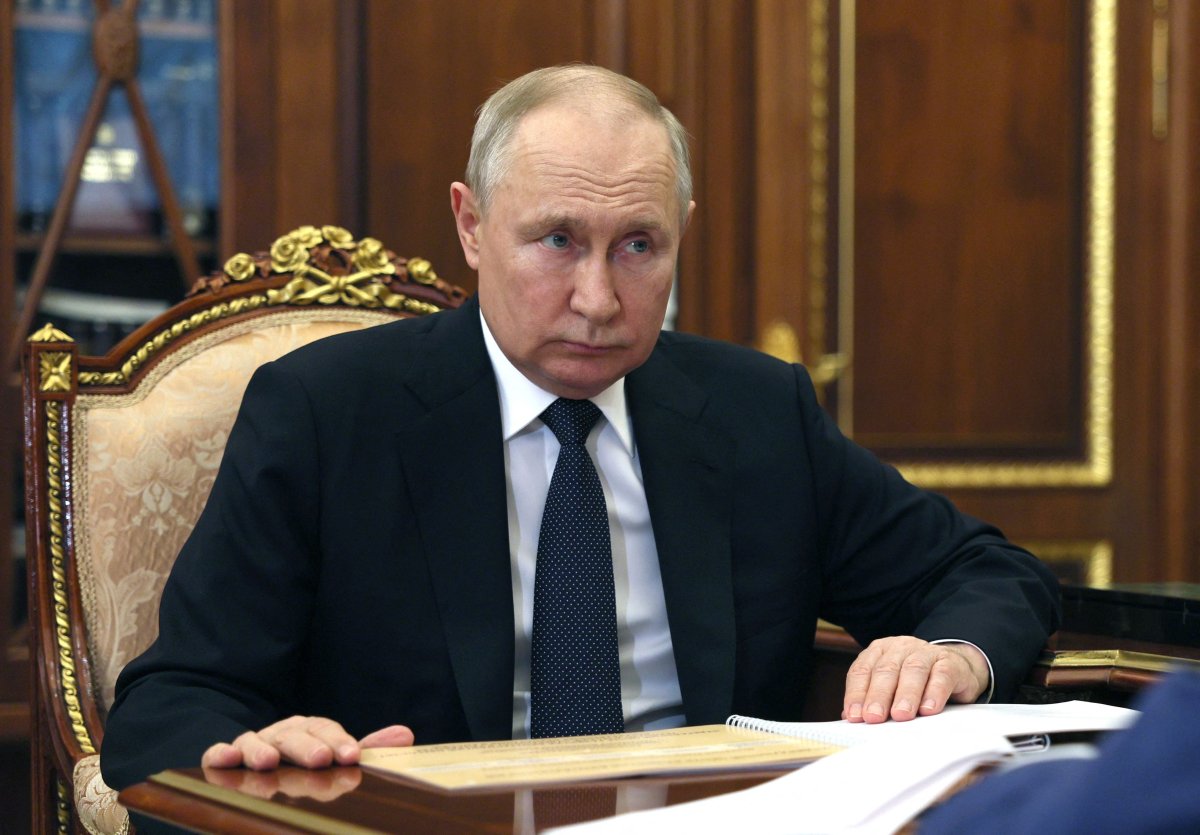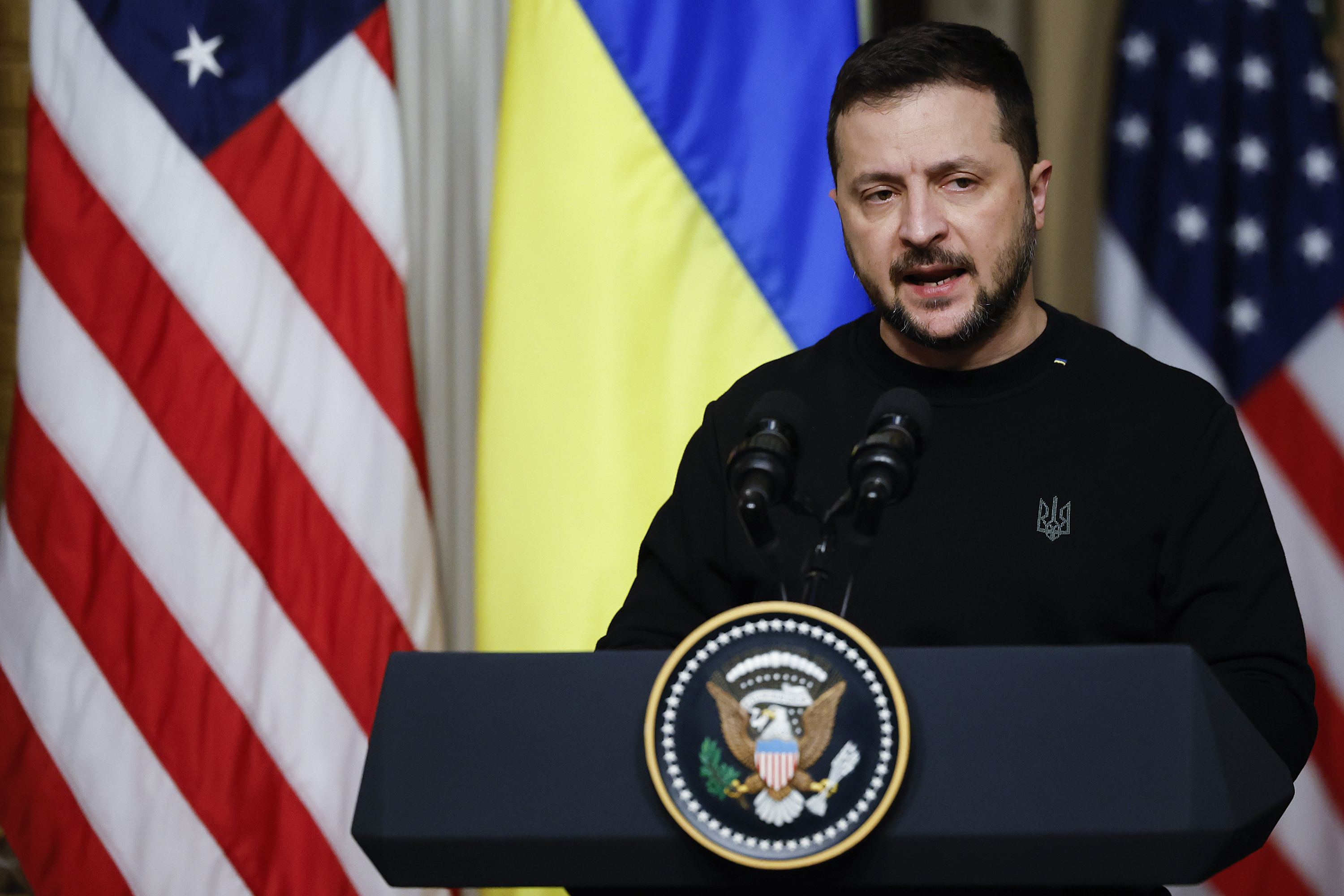Drone attacks on a Russian radar site may have crossed one of Moscow's red lines for potential nuclear weapon use—the "disruption of the response actions of nuclear forces," per the wording of a Kremlin decree signed by President Vladimir Putin in 2020.
Ukrainian drones reportedly targeted the 590th separate radio engineering center of military unit 84680 in the city of Kovilkino on Wednesday morning and on April 11. Kovilkino is in the Mordovia Republic, some 360 miles from the Ukrainian border.
The site is home to a 29B6 "Container" over-the-horizon radar, which forms part of Russia's reconnaissance and early-warning network for aerospace attacks, including those by ballistic missiles.
Sources say the results of Wednesday's attack are still being determined. Ukrainian media reports suggested that the site's command post building was damaged during the attack on April 11, while Russian authorities said two unmanned aerial vehicles (UAVs) had been shot down. Ukrainska Pravda cited an unnamed Defence Intelligence of Ukraine (DIU) source who said the outcome of the strike is still being assessed.

Newsweek has contacted the Russian Defense Ministry and the Kremlin by email to request comment.
If the Container radar system was affected, the attacks may have met one of the "conditions determining the possibility of the Russian Federation using nuclear weapons," as set out by the 2020 presidential decree.
These include "receipt of reliable information about the launch of ballistic missiles attacking the territories of the Russian Federation and (or) its allies," and "the enemy's use of nuclear weapons or other types of weapons of mass destruction on the territories of the Russian Federation and (or) its allies."
Other criteria are listed as "the enemy's impact on critical state or military facilities of the Russian Federation, the failure of which will lead to the disruption of the response actions of nuclear forces," and "aggression against the Russian Federation using conventional weapons, when the very existence of the state is threatened."
The threat of nuclear escalation—whether through nuclear weapons or a disaster at one of the many civilian nuclear power plants in the combat zone—has hung over Russia's full-scale invasion of Ukraine since its beginning in February 2022.
Putin and his top officials have repeatedly warned of a nuclear showdown prompted by Western involvement in the conflict, as have allied leaders including President Joe Biden. The most prominent concerns relate to Russian tactical nuclear warheads intended for localized battlefield use. The Kremlin has never set out any tangible "red line" beyond its nuclear doctrine documents.
In March, Putin said Western adversaries "must realize that we also have weapons that can hit targets on their territory." He added: "All this really threatens a conflict with the use of nuclear weapons and the destruction of civilization. Don't they get that?"
The threat of nuclear escalation has proved a potent tool for the Kremlin in its bid to stymie Western aid for Ukraine and press Kyiv into territorial and political concessions. For all the Russian threats, the U.S. has repeatedly said it has seen no sign of Moscow preparing to resort to weapons of mass destruction in Ukraine.
As early as May 2022, Russian Foreign Ministry spokesperson Alexei Zaitsev accused those suggesting Moscow might use nuclear weapons of "deliberate lies," adding: "Russia firmly adheres to the principle that there can be no winners in a nuclear war, and it must not be unleashed."
Russian conduct, as opposed to rhetoric, has thus far remained aligned with that principle. Ukraine has launched several attacks into Russian territory that theoretically reach the thresholds set out in Moscow's nuclear doctrine, but the Kremlin has shown no intention of escalation.
Ukrainian drones and missiles have repeatedly struck air bases hosting nuclear-capable bomber aircraft and targeted early warning planes, such as in the attacks on the Engels and Dyagilevo air bases inside Russia in December 2022. Kyiv has also targeted Russian vessels that can be armed with nuclear-capable missiles.
Moscow has generally responded with conventional weapons and by withdrawing forces to safer positions, rather than escalating the conflict. Still, the Ukrainian long-range strikes have prompted complaints from Kyiv's Western partners, much to the chagrin of Ukrainians living under constant nationwide Russian bombardment while conducting a grinding and costly defense all along the frontline.
Ukrainian President Volodymyr Zelensky predicted in the fall of 2022 that his Russian counterpart would not use nuclear weapons for fear of his own demise. "He understands that after the use of nuclear weapons he would be unable any more to preserve, so to speak, his life, and I'm confident of that," Zelensky said of Putin.
4/18/24 4:00 a.m. ET: This article has been updated to include more information on past Russian nuclear rhetoric and long-range Ukrainian strikes on Russian territory.
Uncommon Knowledge
Newsweek is committed to challenging conventional wisdom and finding connections in the search for common ground.
Newsweek is committed to challenging conventional wisdom and finding connections in the search for common ground.
About the writer
David Brennan is Newsweek's Diplomatic Correspondent covering world politics and conflicts from London with a focus on NATO, the European ... Read more
To read how Newsweek uses AI as a newsroom tool, Click here.








